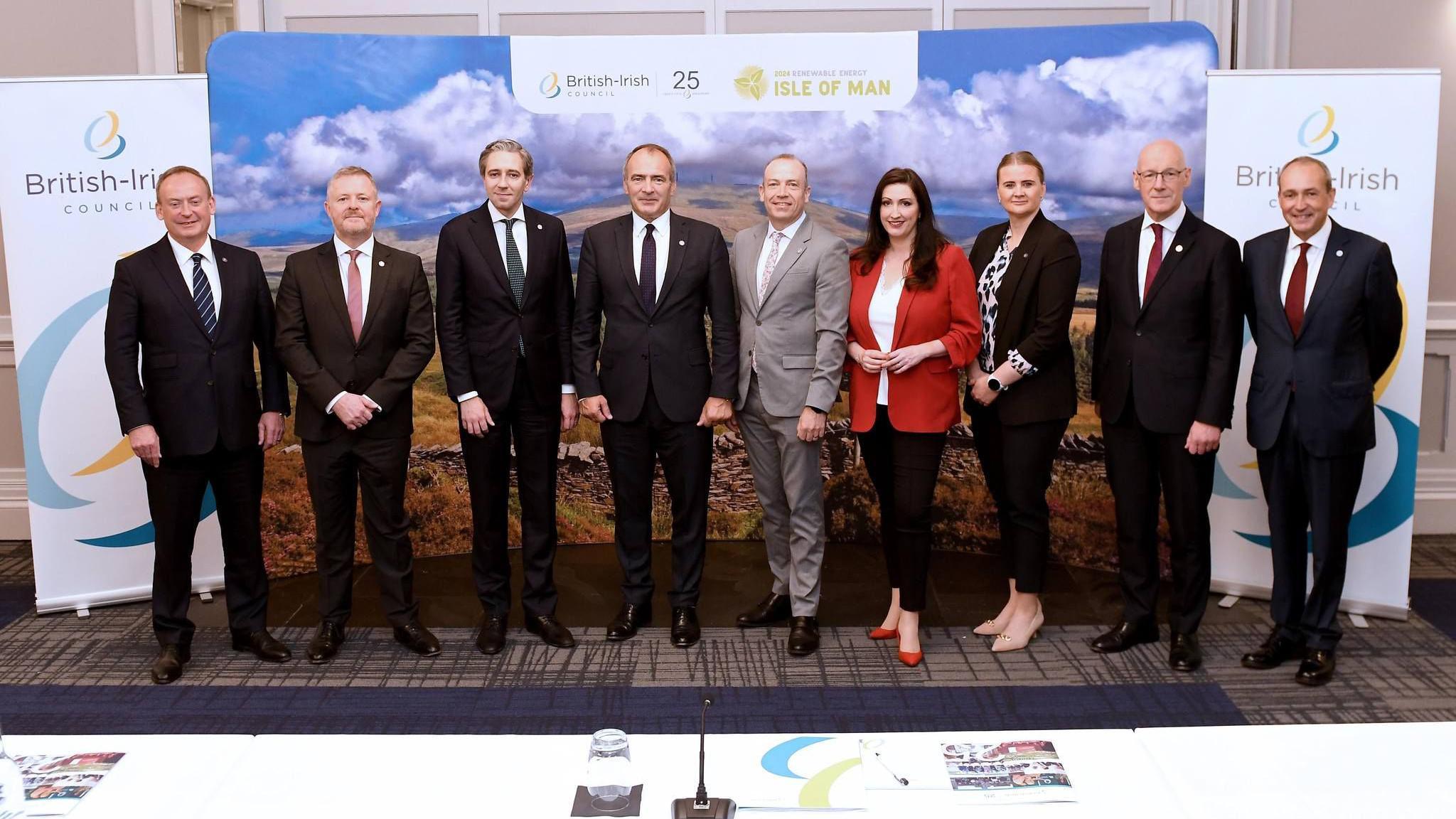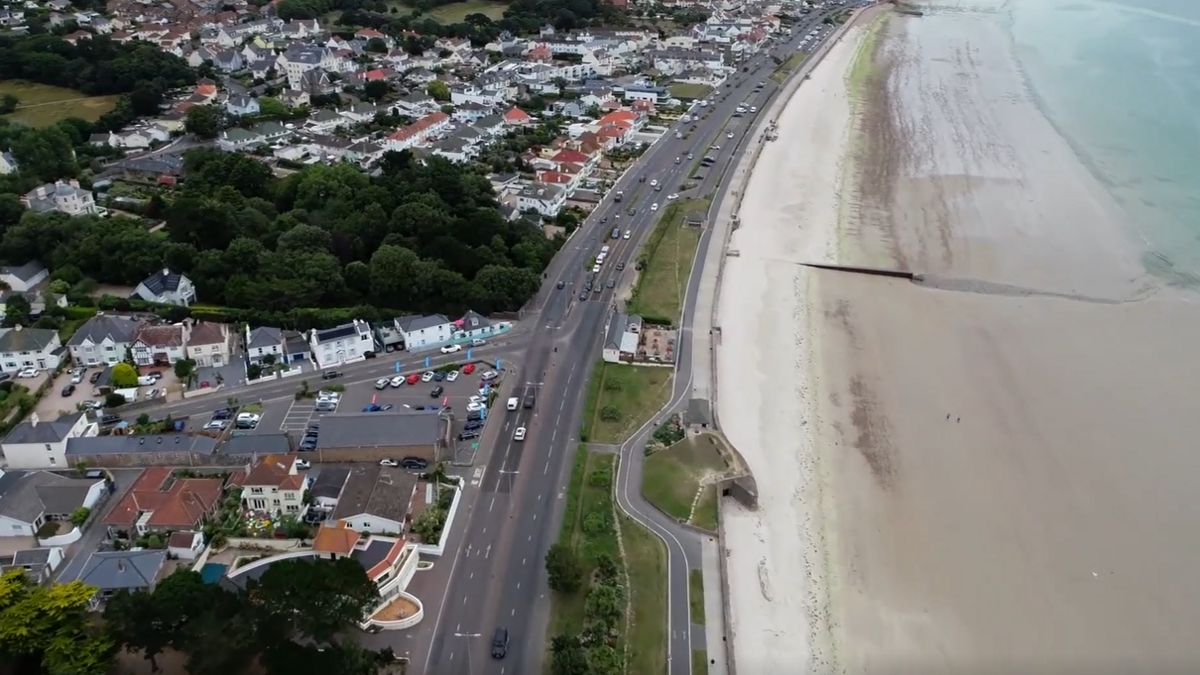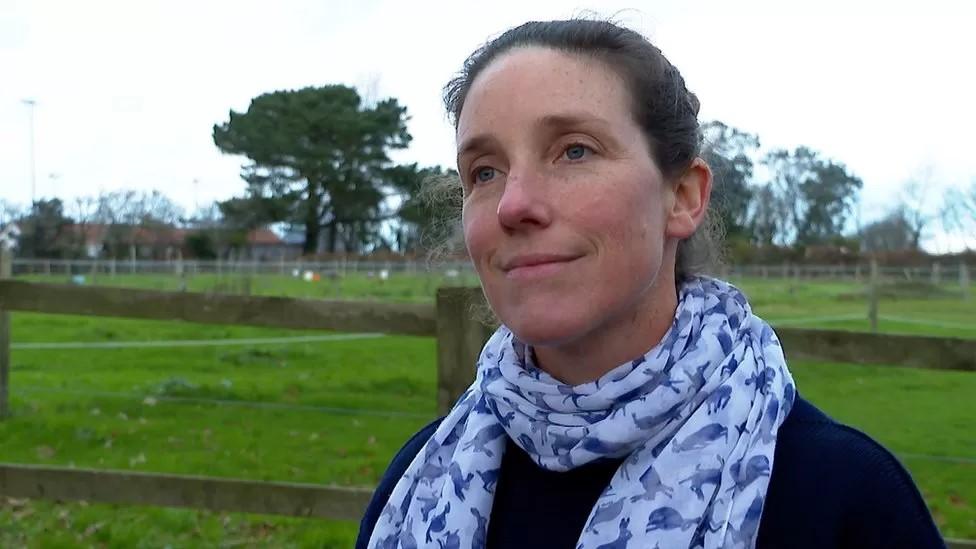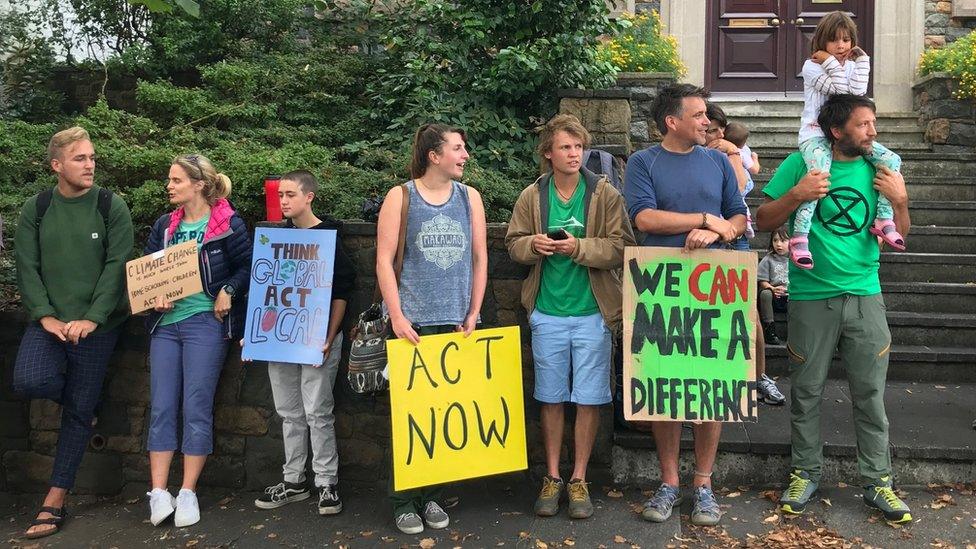Leaders discuss climate change goals

Deputy Lyndon Trott (left) and Deputy Lyndon Farnham (right) attended the British-Irish Council summit
- Published
Jersey and Guernsey's chief ministers have discussed their environmental ambitions for the islands with other leaders.
Deputy Lyndon Trott, Guernsey's Policy and Resources President, and Deputy Lyndon Farnham, Chief Minister of Jersey, attended the British-Irish Council summit in the Isle of Man on Friday.
Climate change was one of the summit's main topics with Mr Trott saying delivering targets would be "challenging", although he added the goals were "realistic".
Mr Farnham told the summit - which was attended by Irish Prime Minister Simon Harris and Scottish First Minister John Swinney - that he wanted to keep "bold" targets.
The council was formed as part of the Good Friday Agreement to promote relationships between the UK, Ireland and Crown Dependencies.
'Ambitious target'
In 2022, Jersey's States Assembly agreed to a Carbon Neutral Roadmap, external which included a target of delivering net zero emissions by 2050.
Speaking during the summit, which also had representatives from Wales and Westminster, Mr Farnham said: "We've bold targets in place and we intend to stick to them.
"I would rather have an ambitious target in place and get 90% there than not have a target in place and not get anywhere."
'Sharing experiences'
In Guernsey, deputies agreed to a target, external of being carbon neutral by 2050 and reducing emissions by 57% compared to levels from 1990 by 2030.
Mr Trott said there were some challenges being faced by the island to meet the targets, but being able to discuss these with other council members was a positive.
He said: "The council had the opportunity to discuss measures to unlock the economic and social opportunities of renewables, which is a shared ambition across all of the member administrations.
"The summit allowed for the sharing of experiences and best practice which can be used to inform the development of our own policies on island."
Follow BBC Guernsey on X (formerly Twitter), external and Facebook, external. Follow BBC Jersey on X (formerly Twitter), external and Facebook, external. Send your story ideas to channel.islands@bbc.co.uk, external.
Related internet links
- Published18 July 2023

- Published11 April 2023

- Published19 August 2020
